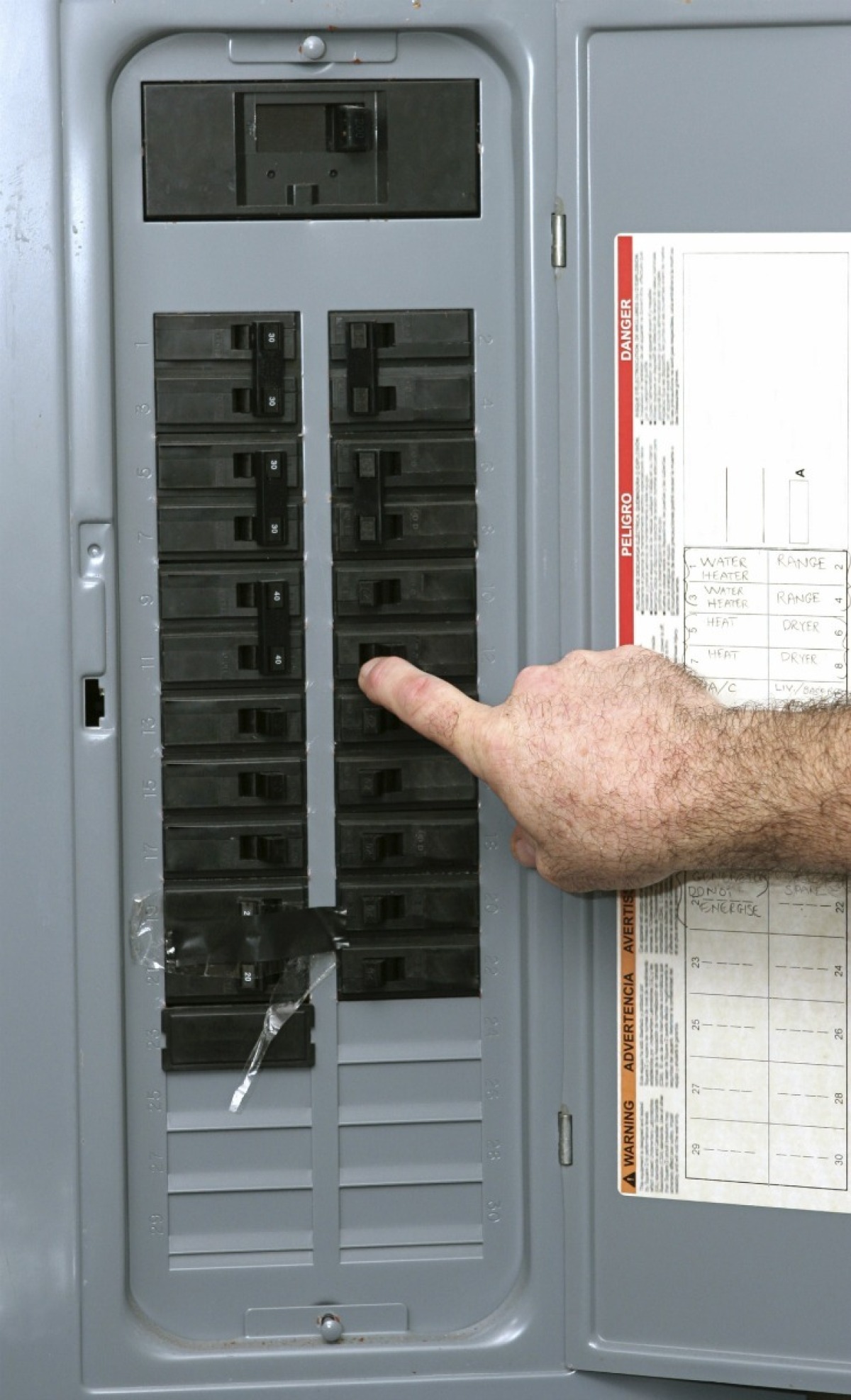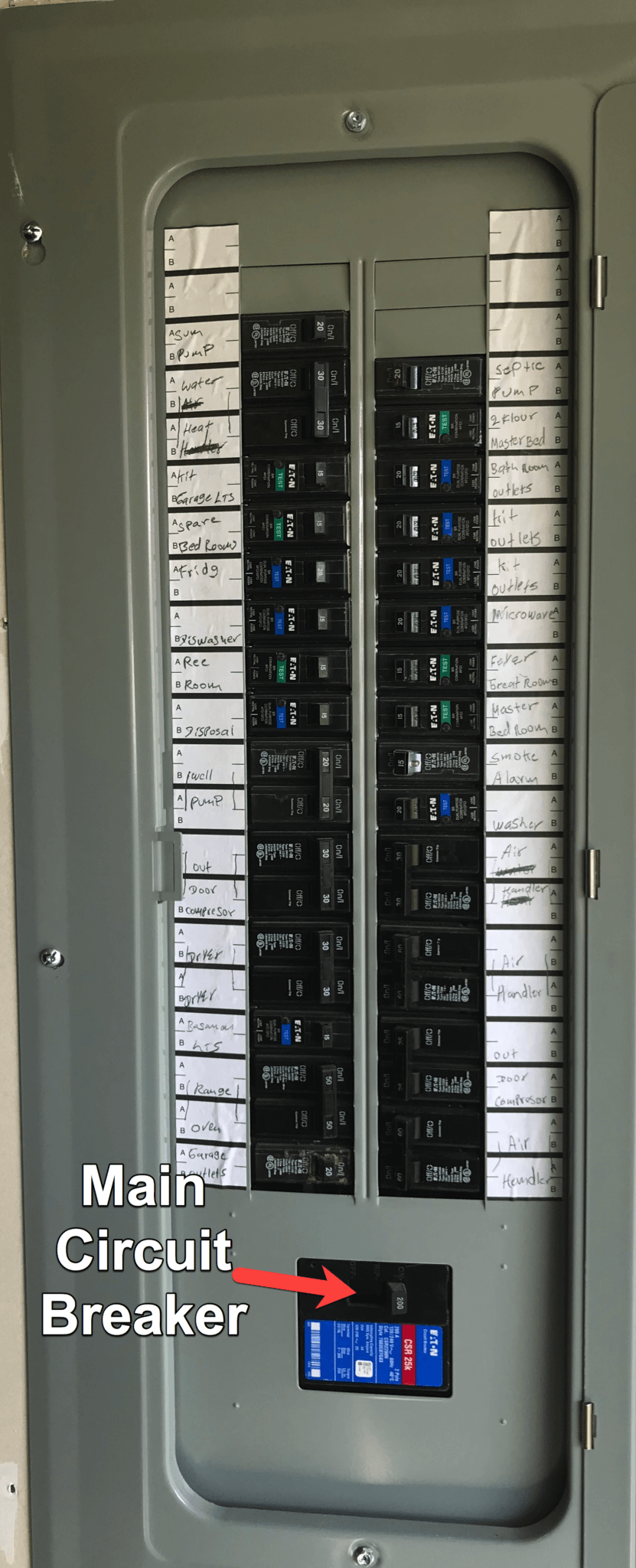Ace Info About Is Breaker Panel AC Or DC

Types Of Circuit Breakers
Breaker Panels
1. Understanding the Current Flow
Okay, so you're staring at your breaker panel, maybe because a lightbulb went rogue, or perhaps you're just naturally curious. The big question popping into your head is likely, "Is this thing AC or DC?" Don't worry, it's a perfectly reasonable question! Most homes and businesses in North America (and many other places around the world) run on alternating current, or AC. Think of AC like a dance party where the electrons are constantly changing direction, going back and forth, back and forth. It's a lively bunch!
Direct current, or DC, on the other hand, is like a disciplined march. Electrons move in one direction, steadily and consistently. You'll find DC in batteries, solar panels, and some electronic devices. But your breaker panel? Almost certainly AC.
Why AC, you ask? Well, it's all about efficiency. AC can be easily stepped up or down in voltage using transformers. This is crucial for transmitting electricity over long distances. Imagine trying to send DC electricity across the country — it would lose a lot of power along the way. AC's ability to be transformed makes it the champion for widespread power distribution.
So, while you might have a few DC devices plugged into your AC outlets (thanks to those handy-dandy adapters), the electricity flowing through your breaker panel is overwhelmingly, almost certainly, AC. Consider it the lifeblood of your modern home, keeping your lights on and your gadgets humming.
Wiring Circuit Breaker Board
Delving Deeper
2. How AC Powers Your Devices
Now that we've established that your breaker panel is indeed an AC hub, let's explore how that AC power actually gets to your devices. Think of your breaker panel as the central distribution point. It receives AC electricity from the power company and then splits it up into different circuits, each protected by a circuit breaker.
Each of these circuits then feeds power to the outlets and fixtures throughout your house. When you plug in your phone charger or flip a light switch, you're tapping into that AC power. But here's the thing: many of your electronic devices actually need DC power to function! That's where those adapters and power supplies come in. They convert the AC power from the outlet into the DC power that your phone, laptop, or TV requires.
It's a fascinating dance of conversion, and most of the time, you don't even notice it happening. But it's a testament to the ingenuity of electrical engineering that we can seamlessly use both AC and DC power in our daily lives. So, the next time you plug something in, take a moment to appreciate the journey that electricity takes to get there — from the power plant to your breaker panel, and then through the wires to your device.
Think of your house like a complex ecosystem, and your breaker panel is the heart. It's constantly working to distribute power where it's needed, keeping everything running smoothly. And it's almost definitely pumping out AC, not DC. Unless you have some really funky alternative energy setup, in which case, you probably already knew the answer to this question!

Safety First
3. Always Exercise Caution
Okay, so we've established the whole AC/DC thing, but let's talk safety for a moment. Breaker panels can be dangerous if you don't know what you're doing. Remember, electricity is powerful, and messing with it without proper knowledge can lead to serious injury or even death. So, let's be clear: If you're not comfortable working with electricity, please call a qualified electrician. Seriously.
That being said, there are a few things you can safely do, like resetting a tripped breaker. If a breaker trips, it means that circuit has been overloaded. Simply flip the breaker switch all the way to the "off" position and then back to the "on" position. If it trips again immediately, there's a problem, and you should investigate further (or, you know, call an electrician!).
Never, ever bypass a breaker or try to overload a circuit. This is a recipe for disaster. And always make sure to turn off the power to a circuit before working on any electrical wiring. It's a simple precaution that can save your life. Think of it like putting on your seatbelt before driving — it's just common sense.
So, be smart, be safe, and don't be afraid to call in the professionals when you're dealing with your breaker panel. A little bit of caution can go a long way in preventing accidents and keeping your home safe and powered up.

Breaker Panel Basics
4. What Else You Should Know
Alright, we've hammered home the AC vs. DC point, but there's more to breaker panels than just that. Knowing some of the basics can help you understand your home's electrical system better and troubleshoot minor issues. For example, did you know that breakers are rated in amps? The amperage rating indicates how much current a circuit can safely handle before the breaker trips.
You might also see terms like "single-pole" and "double-pole" breakers. Single-pole breakers supply 120 volts and are typically used for lighting and small appliances. Double-pole breakers supply 240 volts and are used for larger appliances like electric stoves, dryers, and air conditioners. Understanding the difference can help you diagnose problems and ensure you're using the right breakers for your needs.
Another important thing to know is that breaker panels have a limited capacity. You can't just keep adding circuits and expecting everything to work perfectly. Overloading your panel can lead to tripped breakers, flickering lights, and even fire hazards. If you're planning a major electrical upgrade, like adding a new room or installing a hot tub, you might need to upgrade your breaker panel to accommodate the increased load.
So, take some time to familiarize yourself with your breaker panel. Knowing the basics can empower you to better understand and maintain your home's electrical system. Just remember to always prioritize safety and call a qualified electrician when you're in doubt.

What Is An Electrical System? Here’s You Need To Know Angi
Troubleshooting Common Breaker Issues
5. A Little DIY (With Caution!)
Let's be real, sometimes things go wrong. A breaker trips, the lights go out, and you're left fumbling in the dark. While we always recommend calling an electrician for serious issues, there are a few common problems you can troubleshoot yourself, with caution, of course. The most common issue is, you guessed it, a tripped breaker.
If a breaker trips, the first thing to do is unplug any appliances that are connected to that circuit. Then, reset the breaker by flipping it all the way to the "off" position and then back to the "on" position. If the breaker stays on, you're good to go. If it trips again immediately, there's likely a short circuit or an overload on the circuit. In that case, you'll need to investigate further.
Check the wiring of any lamps or appliances that are plugged into the circuit. Look for frayed wires, loose connections, or damaged plugs. If you find any problems, repair or replace the damaged components. If you can't find any obvious problems, it's possible that the circuit is simply overloaded. Try moving some appliances to a different circuit to reduce the load.
If you've tried all of these things and the breaker still trips, it's time to call an electrician. There could be a more serious problem with the wiring or the breaker itself. Remember, electricity is not something to mess around with. When in doubt, always err on the side of caution and call in the professionals. A little bit of common sense can save you a lot of headaches (and potentially a lot of money!).

FAQ
6. Your Burning Questions Answered
Let's tackle some frequently asked questions about breaker panels and electricity in general.
Q: Can I replace a breaker myself?
A: While technically possible, it's generally not recommended unless you have a solid understanding of electrical work. It's best to leave this to a qualified electrician to avoid potential hazards.Q: How often should I have my breaker panel inspected?
A: It's a good idea to have your breaker panel inspected every few years, especially if you live in an older home or have made any significant electrical upgrades. A professional electrician can identify potential problems and ensure that your panel is functioning safely and efficiently.Q: What's the difference between a fuse and a breaker?
A: Fuses and breakers both protect circuits from overloads, but they work in different ways. A fuse contains a wire that melts when too much current flows through it, breaking the circuit. A breaker is a switch that trips open when it detects an overload. Breakers can be reset, while fuses need to be replaced.Q: My lights are flickering. Is that a problem with the breaker panel?
A: Flickering lights can be caused by a variety of issues, including loose connections, faulty wiring, or a problem with the breaker panel. If the flickering is widespread or persistent, it's best to call an electrician to investigate.